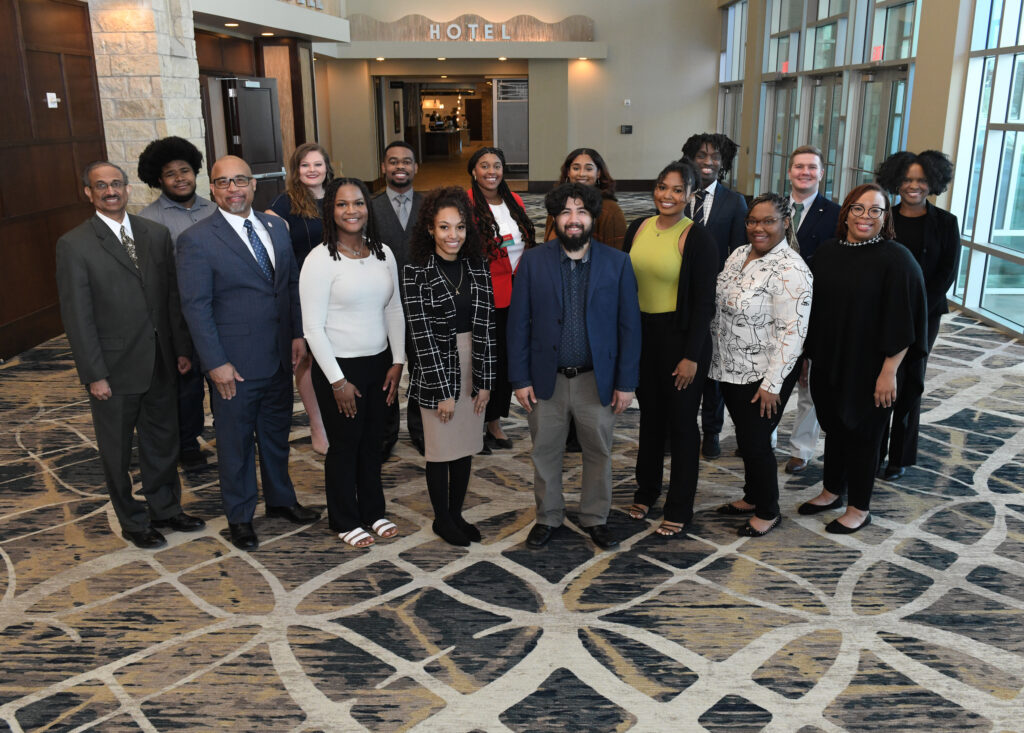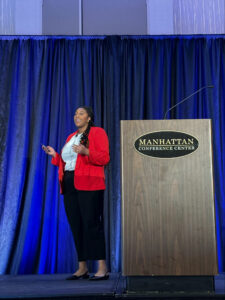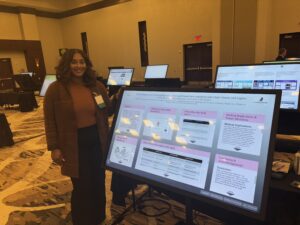Two Langston University students earn awards at annual K-INBRE Symposium

by Ellie Melero, Media Relations Specialist
MANHATTAN, Kan. – Two Langston University students took home awards at the annual Kansas IDeA Network of Biomedical Research Excellence (K-INBRE) Symposium Jan. 12-14.
Senior crop and soil sciences major Kayla Smith earned a 2nd place Award of Excellence in Oral Presentations for her research on “Impairments in Cerebral Autoregulation and Cerebral Reactivity in Cancer Survivorship.” Junior biology major Daysha Isaac earned an Award of Excellence in Poster Presentations for her research on “Stalk Cell Movement in Drosophila: A model to understanding how migrating cells shape tissues and organs.”
“My experience was fun and also interesting,” Smith said. “It was my first time presenting oral presentations.”

K-INBRE is a collaborative effort of medical and academic institutions in Kansas and Oklahoma to “promote multidisciplinary research networks with a focus on Cell and Developmental Biology,” according to the K-INBRE website. Langston University is the only Oklahoma-based institution partnered with K-INBRE.
The program offers LU students mentored research opportunities as well as opportunities to present their research at events like the annual Symposium. For example, Smith, a second-year K-INBRE participant, worked with researchers at Kansas State University.
This is Isaac’s first year participating in K-INBRE. She was introduced to the program by one of her biology professors, Dr. Kj Abraham, who helped mentor her in presenting her research. She also received advice on the structure and presentation of her research from Dr. Lindsay Davis.
Isaac has enjoyed her time in K-INBRE so far, and she was excited to present her research at the Symposium. She studied the ovarioles present in female fruit flies’ ovaries and tracked mutations and their effects on the stalk cells.

“This information allowed us to apply it to birth defects in infants,” Isaac said. “No way are we trying to cure it but gather more information about cell movement to make a connection. Such birth defects we compared it to were spina bifida and microcephaly.”
Smith is likewise passionate about the research she has helped conduct in K-INBRE, and she is confident her experiences in the program will aid her as she prepares to pursue medical school after graduation.
“I realize that my career goal is actually attainable,” Smith said, “and practice does make perfect.”




